SEO & Link Building in 2016

What we’ve seen over the last few years is that Google is increasingly favouring larger brands. Even in Google’s Search Quality Rating Guidelines they state, “Would you recognize this site as an authoritative source when mentioned by name?”
Google determines the size of a brand in comparison to the rest of the market in a given niche (or for a given keyword group) by looking at what are called Brand Signals; indicators to Google that you are an authority in your field – that people in your market know who you are and they trust you.
The analogy I always like to use to explain SEO is that of textbooks…
You have a series of textbooks in a field that all have citations and references to other resources, so you know that if a number of textbooks in a given field point to the same resource, it’s a resource that is relevant and high quality.
The same applies online.
You need references, citations, links, even brand mentions and other signals… and you need all of these in a way that, a) Google sees, b) Google likes, and c) Google allows.
I like to refer to this combination and strategic direction as…
Search Relations (PR for search engines)
Google wants to deliver the best experience for its users, which is why it wants to rank the big brands for as many searches as possible.
To see the real power of SEO, you need to become one of those brands. To do that, you need to build your brand awareness so that you reach your audience across multiple resources.
If they’re reading an article in a newspaper related to your service and a company is interviewed, you need to be that company. If an article in a blog references an industry resource, you need to be that resource. If there is a list of providers of your service somewhere on a related website, you need to be on that list.
By putting yourself in front of your target audience and establishing your brand presence in your marketplace, Google will recognise you as a strong brand among your competitors.
That’s where real SEO success can happen.
The unfortunate reality of big brand SEO
The days of personal blogs or small mortgage brokerages ranking for the keyword ‘home loans’ ahead of the largest banks in a country are over. You can’t pretend to be a big brand in SEO anymore and in the rare cases that ‘pretending’ does work, it doesn’t work for long.
Realistically, this is not such a bad thing for users – if they’re searching for a service or product, they should see the companies that have the highest capacity and industry trust for delivering that service or product, like a bank or lender in the case of ‘home loans’.
So if you’re not one of the strongest brands, you have only 3 options:
- Pick a different keyword group
- Target longer tail, more specific keywords and traffic
- Become one of those brands
If none of those can be accomplished, pick a different service or invest in non-white-hat SEO at your own risk.
How to become a strong brand that Google favours
If you want to become a strong brand that Google favours, there are three key areas to focus on (depending on what is available and applicable for your situation):
- Leveraging existing relationships, marketing & resources
- Getting involved in the industry & community
- Directly promoting your content, brand & products/services
Here are 10 examples of each…
1. Leveraging existing relationships, marketing & resources
- References from your suppliers – Many product suppliers have lists of their stockists or distributors on their websites, and service providers often list clients or client logos as examples of previous work completed. Either way, ask your suppliers or providers to include you on their website within their lists, with a branded link to your website.
- References from your clients (B2B) – Similarly, many distributors, stockists and clients list their suppliers on their website, sometimes with a profile of the suppliers’ brands. Ask your clients to include you on their website within these lists or as a preferred supplier.
- Testimonial contributions – If there is no list on a supplier’s website, they may still include testimonials on their website. If you’re happy with them, offer a testimonial for them to include on their website with a link to your company.
- Leverage radio/TV advertising – Some media outlets have a list of their advertisers on their website. If you are advertising with any radio or TV stations, check if they have this feature and ensure you are included in the list.
- Leverage other sponsorships – Most companies that accept sponsorships display the sponsors on their website, generally with a logo and sometimes with a link. If your company has or will have any sponsorships – whether charities, organisations, clubs, events etc – be sure to request or confirm the addition of your brand or logo on their website with a link back to your site.
- Non-linked brand citations – As your brand awareness grows and you earn a media presence, your brand name will begin to be mentioned in blog posts and news articles. If your company has been mentioned by a writer or journalist, they know who you are and have already promoted your brand name to their readership, so why not ask them to change the existing brand mention to a hyperlink? You can even use this to establish a relationship for future collaborations.
- Leverage press releases – While the old bulk press-release-syndication SEO strategy (where your press release is published to a tonne of PR directories haphazardly) should be avoided, there are some high-quality press release websites that are still valuable if your release is newsworthy. Additionally, if you have company news that is worthy of a press release, you can reach out to local or industry journalists who might find it interesting, and maybe even offer an exclusive interview.
- Leverage existing content resources – Find out what content on your website has been successful in the past. If the content has already generated interest and traction, there is a reason so find any way possible to promote it further.
- Reverse image/Content lookup – If you do have successful content, often key statistics, phrases, charts, tables or images may be re-used or quoted by other writers. Sometimes they may forget to cite you as a source or if they do site you, they may not link to you (as with non-linked brand citations). Reach out to the authors, thank them for the compliment of using your information and ask them nicely if they would mind including a citation to your original piece of content.
- Lost link outreach – Most third party link analysis tools offer a list of pages that previously linked to your website but for which the page or link has been removed. These websites have already linked to you in the past so the relationship is established. Reach out to them, find out why they removed the link, what would be involved in re-establishing the link or how you can work together in the future.
2. Getting involved in the industry and community
- Scholarships – Education institutions often list any scholarships relevant to their students, that can help them financially. Figure out which courses, diplomas and degrees are relevant for careers in or associated with your industry and develop a nominal scholarship program for students in those fields. Ensure you have a description and application page on your website, then reach out to the institutions offering those courses to include the scholarship in their listings.
- Internships – Similarly, many educational institutions love to have partnerships with companies where they can place their students for Work Experience or Internships. Some will list these companies on their website as a sales pitch to bring more students in. In addition to that branding, you can increase your work capacity with an intern and you will often find some great future staff members through internship programs (as we ourselves have discovered repeatedly over the years).
- Guest speakerships – Many of you will remember at some point or another that a guest speaker came to your school, college, university or TAFE to give a talk relevant to the course you were studying. If you’re an expert in your field and are comfortable in front of groups of students, offer your services as a guest speaker to provide insights into the industry or educate them on a specific sub-topic. Many institutions will include guest speakers and their companies in the course outlines, which are often available online.
- Event sponsorships/suppliers – If there are any upcoming events in your industry, in particular for your target market, contact the event organisers to offer either a sponsorship or, if your products or services are suitable, to become a supplier of the event. Most events have an online presence and will list their event sponsors and suppliers somewhere on the website.
- Host an industry event – One challenge, especially with smaller events, is finding funding to pay for venues. If you cannot offer financial support or supplies, or if the event is smaller in nature, you can offer your facilities to host the event. You will find that venues are always listed on event details pages, and they may link to your Contact Us page if it has details on how to get there.
- Charity sponsorships – There are many charities that are in urgent need of funding. Leaving aside that every company should be giving back to the community, some charities will also list sponsors on their website. Find a charity that is in line with your company ethos and get involved.
- Join industry associations – Most industries have an association of some kind that requires membership from companies, and many of these associations have a directory of their members. These websites can be super relevant and, as they have an application process, only have legitimate businesses listed. You should be one of those businesses. They may even have events coming up that you could get involved with.
- Competition prize contributions – On sites like HARO and SourceBottle, people working in media sometimes list requests for competition prizes to be donated in exchange for referencing the brand in the competition marketing materials and channels. If the competition is relevant and will have an online presence, you could offer services or products as a prize to take advantage of that branding.
- Industry forum engagement – Forums get a bad rap, but many industries have great forums where the community and experts are really engaged. Create a real profile for a real person and start getting involved in the conversations; offer your industry expertise, advice for resolving issues, feedback on comments or questions. If you publish content, you can even share a summary with a link to the original in a new thread and ask people for their feedback. Though I think it obvious, it’s worth mentioning that you should never spam a forum with links and avoid using your website in your forum signature – while this may have worked in the past, you will get banned from any good quality forums and overdoing it will likely give you issues with Google penalties.
- Offer interviews – Bloggers and journalists are often looking for experts to interview on difficult or controversial topics. Keep a lookout on HARO and SourceBottle for requests, or even reach out to journalists or bloggers that you know to be interested in your area of expertise and offer yourself as a source. Some media outlets even have a standing request for interviews.
3. Promoting your brand, products, services and content to industry resources and influencers
Note that this area of brand promotion is what most closely resembles SEO of the past, but it must be evolved for the present and future.
- Linkable content creation & promotion – Quite simply, create content that people in your field will want to link to. As with technical onsite SEO, there are plenty of resources available online that discuss creating content that will attract links and ways to promote that content to acquire links. Brian Dean offers a detailed explanation of what he calls the Skyscraper Technique for creating linkable assets and Noah Kagan goes through a similar strategy but elaborates more on content promotion.
- Egobait aggregator lists content – People like recognition. If you curate a list of the “Top/Best XX Anything”, and include links to each blog, website, or company in the list, potentially with a snippet or description, you can then reach out to them and let them know. The smaller to medium sized websites especially will want to brag about it, especially if it’s an award, and may include a link on their website back to the list.
- Egobait citations/references content – Similarly, you could quote or cite a targeted author in your high-quality content with a link back to their site, then reach out to them and let them know. They may or may not link to it in time, but more often they will share it with their followers and one of them may end up linking to it.
- Host webinars – An underrated and underused medium in most industries is video content. If it’s within your capacity, host webinars to train up the industry on difficult topics, or offer beginner sessions. Record and publish these as videos, or even create independent informational videos, and promote the video as you would any other linkable asset.
- Offer sample products for review – Bloggers love free samples and many will review products in their field anyway. Offer a sample in exchange for an independent (unbiased) review of your product published on their website. Obviously here, you need to have a good product to get maximum benefit from the review.
- Blogger relationship building – Identify the top blogs and information resources in your industry. Start engaging with their content; add valuable comments on their site; share their content and link to it where possible; promote them on your social media profiles. Establish a positive relationship before you ask for anything and then, once you have a dialogue, you can share your content and ask for their feedback, or you can brainstorm other ways to collaborate.
- Social influencer relationship building – Identify the top social profiles and influencers in your industry. Start engaging with them across their social platforms; favourite and retweet their tweets; share and like their Facebook posts. Establish a positive relationship before you ask for anything and then, once you have a dialogue, you can share your content and ask for their feedback, or you can brainstorm other ways to collaborate.
- Industry resource lists – In many industries, you will find lists of providers, suppliers, tools, etc – for example on ‘Useful Resources’ pages. If you find a list of your competitors all on one page, you need to be on that list. Contact the website owners and ask them if they would include you among the list of providers. If they only have a shortlist of the biggest brands, they may not include you, but many want to have a comprehensive list of all available providers and will be happy to keep the list fresh.
- Off-site aggregator lists – Similar to industry resource lists, there are websites or web pages in some industries that are dedicated to aggregating specific types of companies or websites. If there is a list relevant to your products, services or company type, contact the aggregator and ask them what would be involved in getting listed. Comparison sites (loans, insurance, accommodation) are a great example of aggregator lists, but often it’s as simple as a blog article listing everyone in your field.
- Viral competitions/offers – Create a competition or a special offer that is so outrageous people will want to share it with their social followers. Or, taking it to the next level, create a competition or a discount specifically for target bloggers – if the incentive is high enough, it will entice them to share it with their social profiles and link to it from their website.
Get creative and figure out what will work for you. Audit your resources and make sure you are making the most of all of your marketing channels. Find unique ways to get involved in your specific niche or industry.
Here are additional resources for advanced tactics to get your brand name out there:
- Neil Patel – Improve Google Rankings Without Getting Penalized (see #6)
- Jon Cooper – Point Blank SEO
- Brian Dean – Backlinko
- Garrett French – Linkable Asset Inventory
- Jason Acidre – Brand Signals
Sources
- http://www.searchenginejournal.com/love-it-or-hate-it-theres-no-doubt-that-google-prefers-brands/59379/
- http://searchenginewatch.com/sew/how-to/2300841/big-brands-google-penalties-you
- http://searchenginewatch.com/sew/how-to/2103243/branding-seo-send-signals
- http://realbusiness.co.uk/article/25613-brand-signals-and-the-new-seo-
- http://www.seobook.com/potential-brand-signals
- http://kaiserthesage.com/brand-signals/




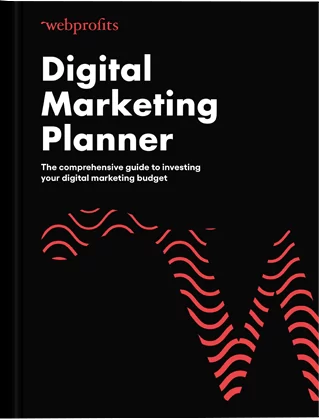
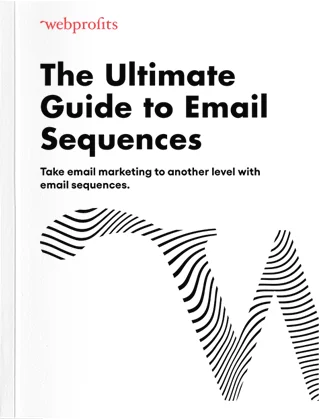
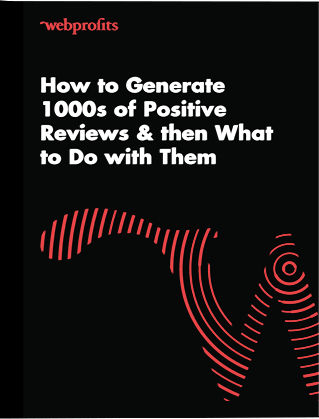
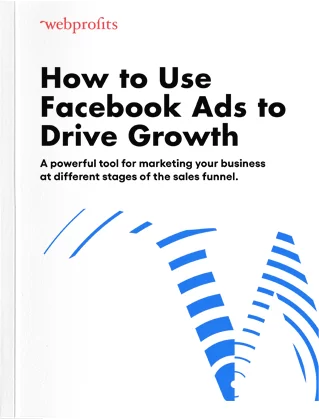
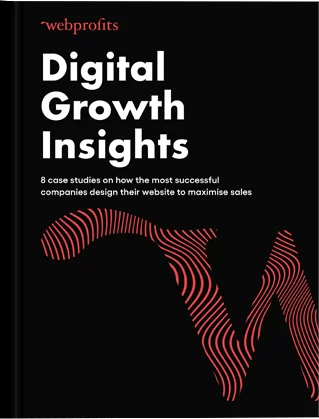
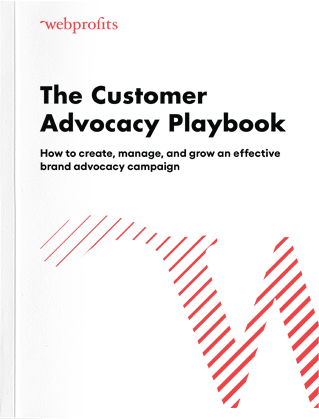


Thanks for the great tips! Hopefully we will be there one day! 🙂
Thanks for some great tips. It’s a tough job but the rewards are worth the effort. Do you have thoughts on using Adwords to boost SEO?
It seems to me not too much has actually changed.
Hey Gvanto,
Thanks for the feedback! Unfortunately, there is no way to directly impact SEO by using AdWords. AdWords should be about ROI so you should use your advertising budgets on lead or sale generating strategies.
If you have more than enough budget to do both, you can expand brand awareness using Display advertising to get more people interested in your brand as a whole, which may have an impact later with more brand signals, or you can use ads to promote your linkable assets. For example, you can use Facebook sponsored posts or native advertising to build interest for a powerful piece of content, push for more social engagement and attract people to your site that might end up linking to the content.
Hi, wonderful information about Link Building. Nowadays it is one of the hardest things to do in a SEO strategy. Do you have some info about using infographics as a link building strategy?
Thanks for sharing
Nice info about backlinks.Thanks for providing such useful information. The given information is really very helpful to me. Hope, I will get more information regarding the same in future. Really I appreciate.
Hey Don,
Smaller companies already have a tough time with Google’s progression towards brand signals having a greater impact on rankings and authority. It is certainly a challenge, but the goal is to become a larger brand so you can compete for the higher value keywords.
You do not need to do all of the suggestions and they are not all expensive – a number of them are actually free and just require your time.
I would suggest to start with ones that are within your capacity or budget. Try to have a variety of link building strategies going at once so that you can diversify your backlink profile and have a greater chance for acquiring quality links.
Bigger companies can follow all the steps. But how small companies do these expensive link building? SEO going to be a premium marketing service.
Hi George, Thanks for the post but i believe Link Building is not as big as it used to be as far as ranking factors are concerned, just because they can be easily manipulated and i think Google has just had enough (or will had enough in the very near future). Sure it does hold some weight still today but i believe there are many other ranking factors people should be paying attention to other than link building. I hope you dont mind but i believe our latest article ‘Should You Focus on Backlinks in 2016?’ is a great follow up and extension for your post for your readers. Hope you enjoy as much as i have enjoyed reading yours!
http://www.sixtymarketing.com/focus-backlinks-2016/
Great Post! Being a successful business owner is great, you are correct however, in saying “Broken link building, ego bait, content marketing, and email outreach is not exactly what most of us want to take on when we’re running our own business or managing client expectations on a day-to-day basis—or ever”. I just try to do my best and learn as I go, your post will help tremendously with my ongoing efforts. Thanks very much!
It’ very helpfull post.
Very good info. Lucky me I ran across your website by accident (stumbleupon).
I’ve book marked it for later!
Great guide on link building, thanks for sharing with us dude.
I thinks Backlinks are way more important for getting ranked.
Impressive post. Thank you so much for sharing this post with us. Great Job!
I am impressed by the quality of information on this website. There are a lot of good resources here. I am sure I will visit this place again soon.
Useful information shared.. I got good information to read this article, thanks for giving us nice info. Fantastic walk-through. I appreciate this post.